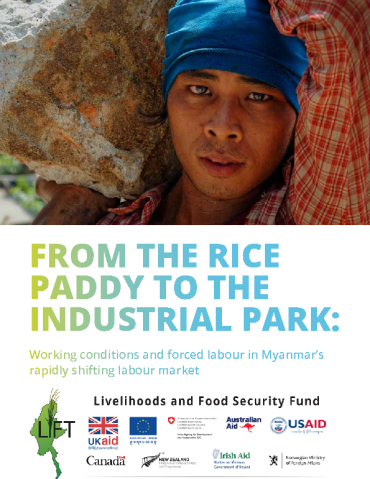
Myanmar’s transition towards a more open and market-oriented economy is creating major structural changes in employment for Myanmar’s labour force. The shift from agricultural livelihoods in rural areas to wage employment in the service and manufacturing sectors in cities is increasing, driven by expanding foreign direct investment and international trade. Myanmar’s economic growth has brought with it improved prospects for workers to find better remunerated work within the labour market, including for a growing number of workers who are pursuing employment abroad.
However, the rapid changes to the nature of employment have also brought significant challenges in ensuring conditions of decent work. Decades of military rule and isolation from the international community have contributed to a labour governance framework that is outdated, contradictory and vague. Limitations remain in the capacity of stakeholders to ensure labour rights are provided, as well as awareness of these rights among the workforce. There are deeply entrenched obstacles to achieving respect for diversity and institutionalising principles of non-discrimination. Establishing harmonious social dialogue and industrial relations continues to be restricted through suppression and exclusion from labour organising, requiring a whole new culture of engagement, negotiation and compromise.
For many years, attention to issues of forced labour in Myanmar was focused on abuses committed by military and government officials. Read the full report for more details.


